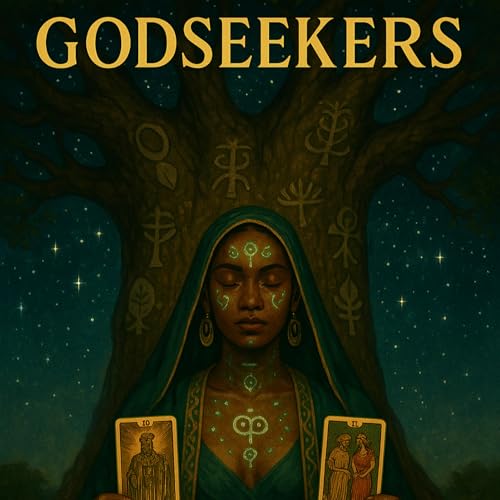
What is a Godseeker?
カートのアイテムが多すぎます
カートに追加できませんでした。
ウィッシュリストに追加できませんでした。
ほしい物リストの削除に失敗しました。
ポッドキャストのフォローに失敗しました
ポッドキャストのフォロー解除に失敗しました
-
ナレーター:
-
著者:
このコンテンツについて
What is the core definition of a "Seeker" in a spiritual context?
A Seeker, in the spiritual sense, is an individual who actively and independently investigates spiritual truths. Their primary intention is to discover and apply these truths to live a more fulfilling, joyful, and meaningful life. Unlike "Adopters" who accept pre-existing religious or philosophical frameworks, or "Abstainers" who dismiss spiritual inquiry, Seekers forge their own unique spiritual path.
The "problem of evil" is a significant philosophical and theological dilemma that questions how a God who is simultaneously all-powerful, all-knowing, and all-loving can permit the existence of immense evil and suffering in the world. Examples like war, pandemics, slavery, colonization, apartheid, and natural disasters are cited as evidence that contradicts the notion of a benevolent and omnipotent deity. Philosophers argue that if God is willing but unable to prevent evil, He is impotent; if able but unwilling, He is malevolent; and if both, the existence of evil is a logical contradiction.
While the term "seeker" is often used for non-Christians interested in spirituality, within the Christian context, "seeking after God" is primarily a characteristic of Christians. It's an ongoing lifestyle of those who desire to know, love, and follow God more deeply, rather than just the initial step of conversion. For Christians, seeking God involves attracting His supernatural presence through specific practices, while the Godseekers literally seek powerful beings they revere as gods for their strength and to ascend to a higher state.
Several biblical narratives are presented as challenging traditional notions of God's attributes:
- God's regret in Genesis 6:6: This challenges divine omniscience, suggesting a limitation in God's foreknowledge.
- Noah's Flood: The indiscriminate destruction, including innocent individuals, raises questions about divine justice and mercy.
- Job's Suffering: God permitting Job's profound suffering as a "test" of faith raises ethical concerns about divine justice and sovereignty.
- The Plagues of Egypt (particularly the death of the firstborn): The punishment of innocent children for the actions of Pharaoh raises serious moral and legal concerns regarding divine justice and empathy.
- Lucifer's Fall: God's decision to allow Lucifer, a being associated with evil, to exist and influence humanity negatively raises questions about God's responsibility for evil and the fairness of human accountability for actions influenced by external malevolent forces.
The primary obstacles identified are:
- A wrong theological understanding of legalism: Many Christians wrongly perceive spiritual disciplines as legalistic, meaning they feel forced to do something they don't want to do, or believe these practices are requirements for salvation. However, true legalism involves adding works for salvation, adding extra-biblical requirements to God's commands, or hypocritically emphasizing less important commands while neglecting more crucial ones.
- "Busyness": Christians often prioritize work, studies, family responsibilities, and entertainment over dedicating time to seeking God. This indicates a coldness in their love for God and a failure to make Him the primary priority, leading to a lack of spiritual victory and power.


